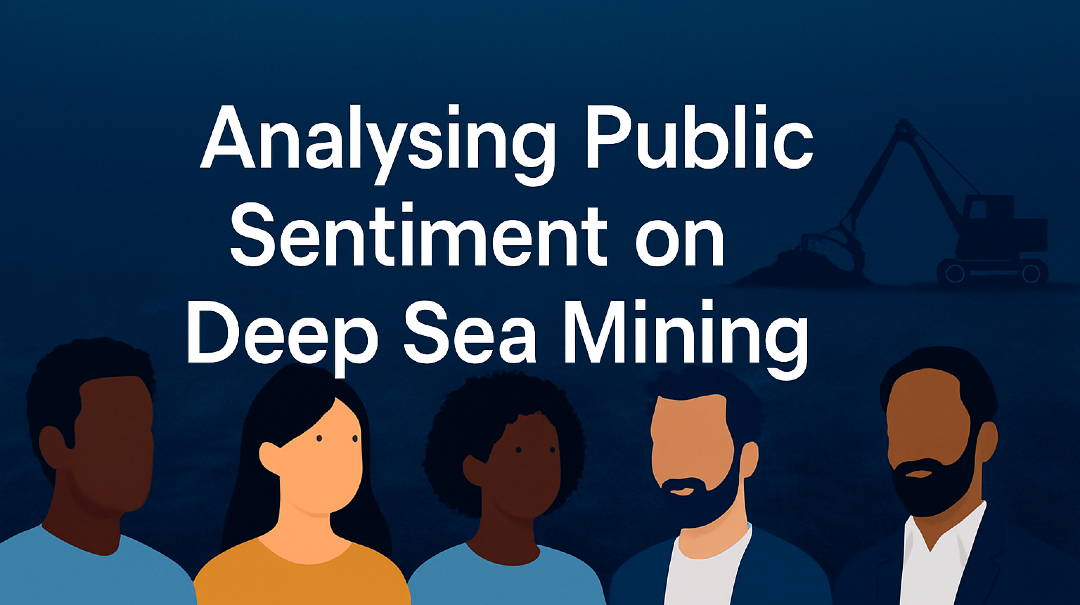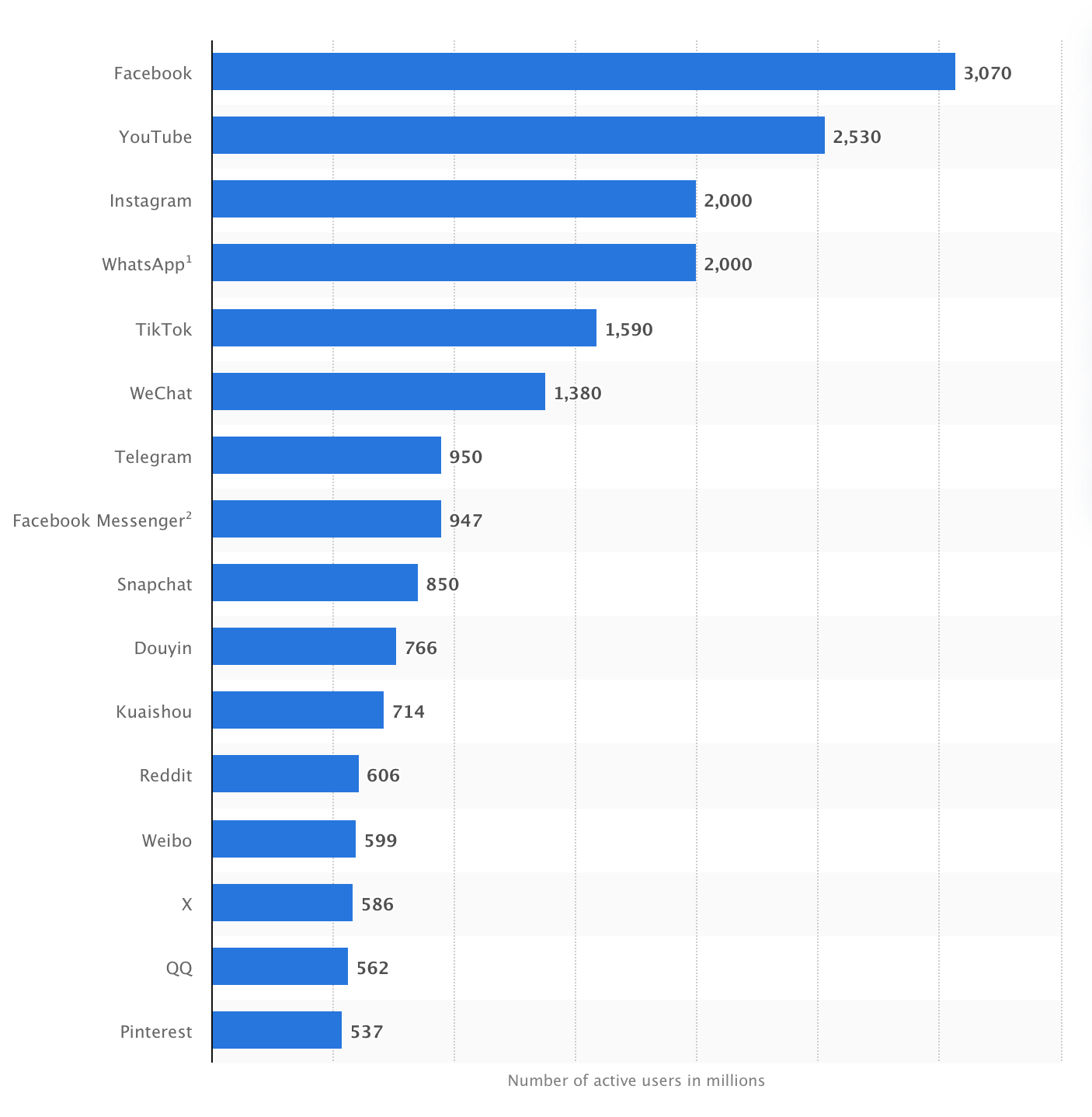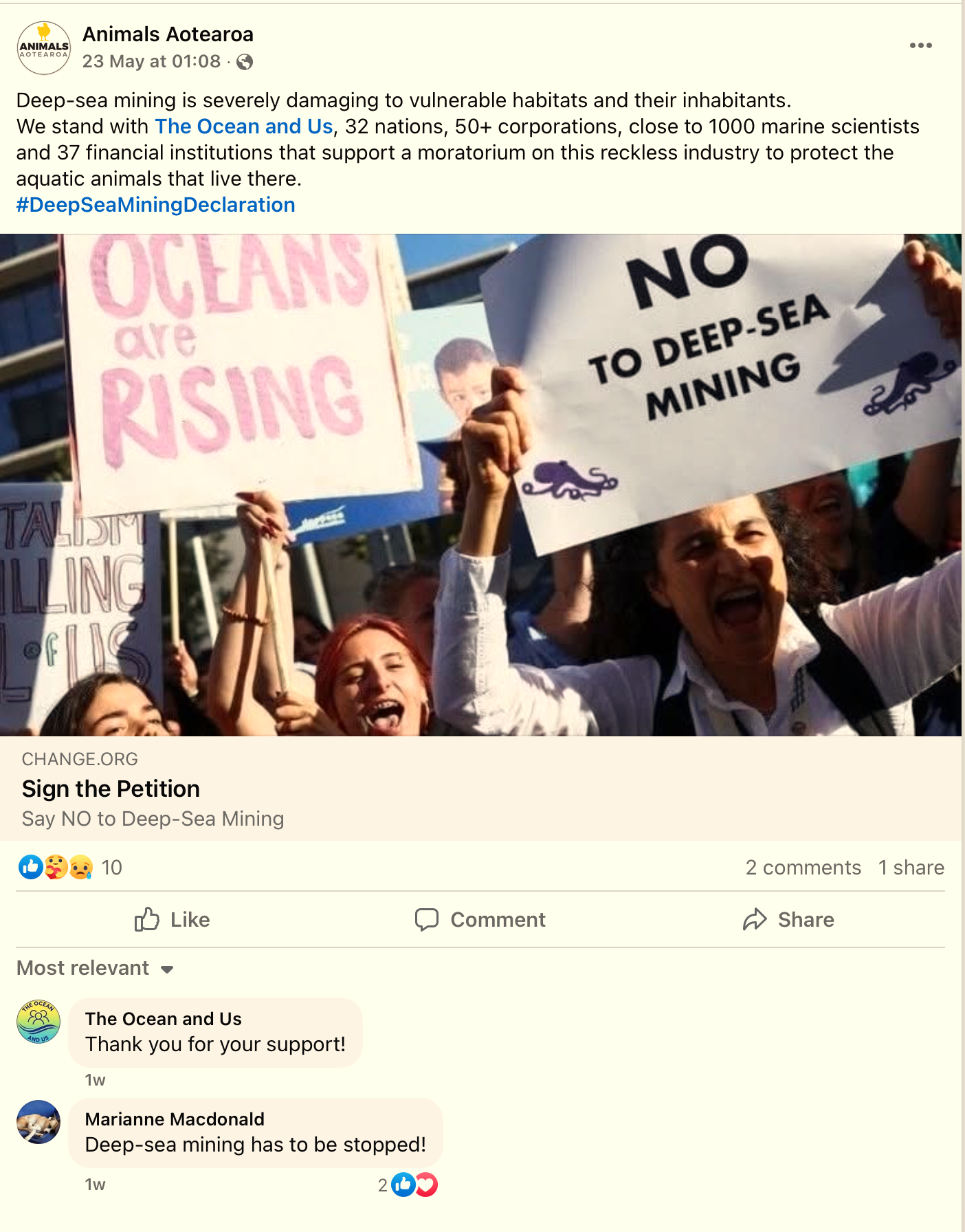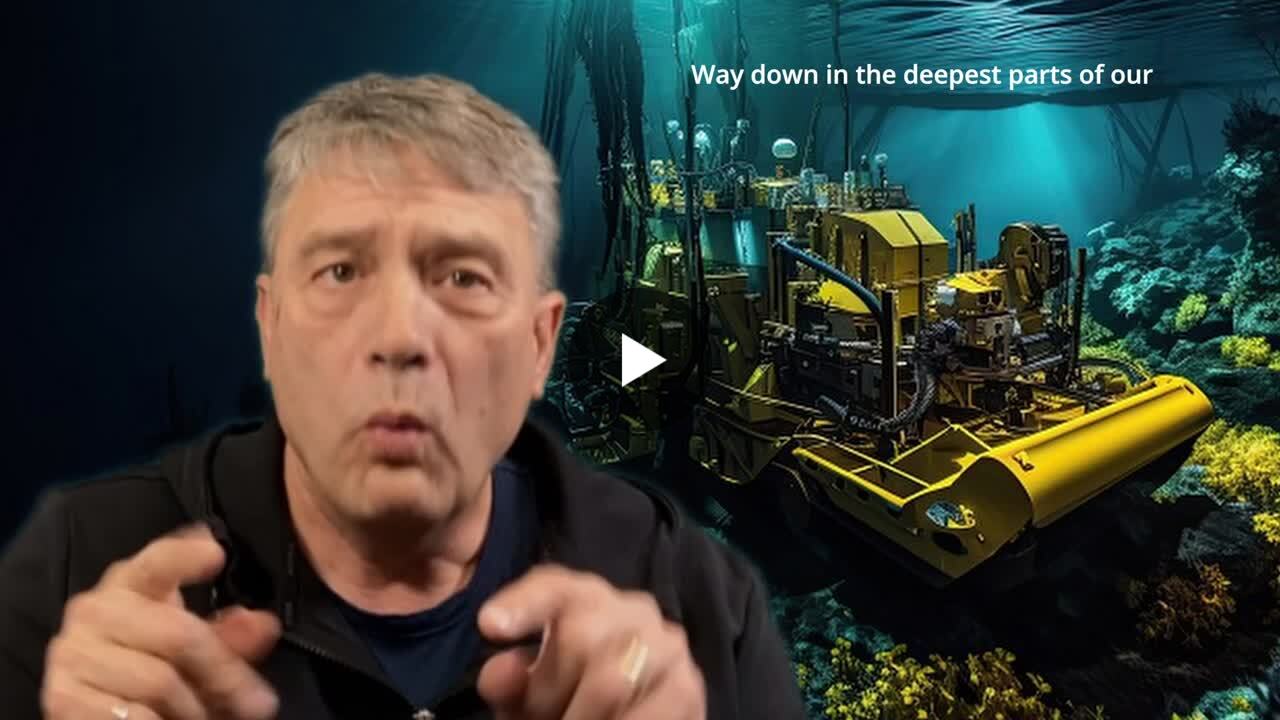Sentiment analysis of Deep Sea Mining since Donald Trump's Executive Order
The conversation around deep sea mining burst into the mainstream when Donald Trump signed an executive order allowing US companies to apply for licences. Just over a month later, what does the global public think?

Scope
Deep Blue League analysed public sentiment on social media in the wake of Donald Trump’s executive order on 24 April 2025, which aimed to fast-track deep sea mining projects under a dormant and contested United States regulatory framework.
The analysis spanned 24 April 2025 to the date of publication, and used AI to interpret trends across X (formerly Twitter), Reddit, Facebook, LinkedIn, and Bluesky.
Social media landscape
While Statista data shows other platforms with more global users, the five selected channels are better suited to real-time content and complex debate, making them more appropriate for gauging sentiment around deep sea mining.

Overview of mentions
An estimated 1.2 million posts related to deep sea mining were recorded across the five platforms during the period of analysis.
Engagement peaks
- 24–26 April 2025: Activity surged following Trump’s executive order.
- 1 May 2025: Notable increase after the International Seabed Authority responded to Trump's EO.
Sentiment distribution
Sentiment was categorised using five levels: very positive, positive, neutral, negative, and very negative.
- Reddit: 35% of total, dominated by negative and very negative sentiment.
- X: 25% of total mentions with a mix of neutral and negative tones.
- Facebook: 20% of total mentions mostly negative.
- LinkedIn: 15% of total mentions with balanced sentiment and professional debate.
- Bluesky: 5% of total mentions on an emerging platform with a strong negative skew.
| Platform | Very positive | Positive | Neutral | Negative | Very negative |
|---|---|---|---|---|---|
| 2% | 5% | 10% | 35% | 48% | |
| X (formerly Twitter) | 5% | 10% | 15% | 30% | 40% |
| 3% | 7% | 20% | 35% | 35% | |
| 10% | 25% | 30% | 20% | 15% | |
| Bluesky | 4% | 6% | 20% | 30% | 40% |
Note: Percentages are approximate based on available post data and may not total 100% due to rounding.
Why sentiment may vary across platforms
The culture of each platform and the nature of the user base may influence sentiment patterns.
- Reddit & X (formerly Twitter): Tend toward criticism, with users focused on environmental activism, political skepticism, and transparency.
- LinkedIn: Skews positive, reflecting a bias towards industry and the career focused nature of the platform which skews content towards innovation, investment, and supply chain opportunities.
- Facebook: Mixed views from broader demographics, with both local advocacy and casual commentary represented.
- Bluesky: Similar to X but smaller; early adopters often express anti-corporate or climate-first positions.
Platform breakdown
Reddit forums (subreddits) featured the most vocal opposition, with 48% of posts rated very negative. Key themes:
- Environmental degradation
- Distrust in corporate motives
- Advocacy for regulatory moratoriums

X (formerly Twitter)
Known for rapid response and trend amplification, X saw 40% of posts rated very negative. Key themes:
- Spread of environmental risk narratives
- Online petition coordination
- Criticism of government policy shifts
It's actually pretty simple - nothing good can come of #deepseamining if we can't even keep our oceans healthy from #ClimateCrisis. Mine space, not the ocean. #SaveThePlanet #ClimateActionNow
— Amanda Nicole (@AmandaNicole487) May 30, 2025
Facebook hosted community-driven conversations, with 35% negative and 35% very negative sentiment. Key themes:
- Sharing of films and articles
- Community advocacy for environmental protection
- Interest in sustainable resource alternatives

Professional insights drove a more balanced tone, with 25% positive and 30% neutral sentiment. Key themes:
- Sector-specific commentary on mining tech
- Economic versus environmental trade-offs
- Regulatory and policy discourse

Bluesky
A smaller, but highly engaged user base drove 40% very negative sentiment. Key themes:
- Ecological and ocean biodiversity concerns
- Calls for regulatory transparency
- Emerging activist voices
No exaggeration, deep sea mining could cause the massive collapse of the entire deep sea ecosystem and food chain. This is an existential risk to every person on this planet. www.nytimes.com/2025/04/24/c...
— Alejandra Caraballo (@esqueer.net) 2025-04-24T21:54:54.826Z
Location and demographics
- Europe: 56% negative sentiment; notably strong in Belgium, Poland, and Italy
- Pacific Islands: 66% opposition in the Cook Islands, citing environmental and cultural concerns
- United States: Mixed sentiment; support from industry voices, resistance from environmental groups
- Age: Users aged 18-35 were most active, especially on Reddit and X, and strongly opposed
- Professional background: LinkedIn activity reflected engagement from academics, regulators, and corporate executives.
Topic clusters
Natural language processing revealed five core discussion areas:
- Environmental concerns: Marine ecosystem damage, biodiversity loss, and disruption to carbon sinks
- Economic opportunities: Role of seabed minerals in energy transitions
- Regulatory frameworks: Criticism of fragmented or outdated rules and delays in ISA process
- Technological feasibility: Questions about deep sea mining operational readiness
- Geopolitical dynamics: Strategic positioning of the U.S., China, and Norway
Key voices shaping the debate
Environmental groups:
- Greenpeace, Pew Charitable Trusts, Deep Sea Conservation Coalition
- Combined reach: over 500,000
- Focused on precautionary principle, moratorium advocacy
Industry leaders:
- The Metals Company, Impossible Metals
- Focused on innovation, mineral independence, and framing mining as responsible and the key to decarbonisation and US national security
Academic voices:
- Institutions such as Schmidt Ocean Institute
- Emphasises evidence-based insights into environmental and ecological impact
Stakeholder influence overview
| Stakeholder group | Key entities/examples | Influence level | Primary interests |
|---|---|---|---|
| Government & regulators | U.S. Government, International Seabed Authority (ISA) | High | Economic growth, national security, regulatory control |
| Mining corporations | The Metals Company, Impossible Metals | High | Seabed access, investment, tech development |
| Environmental NGOs | Greenpeace, Deep Sea Conservation Coalition | High | Biodiversity, marine protection, climate policy |
| Scientific community | Marine biologists, research institutions | Medium | Impact research, transparency, best practices |
| General public | Users on Reddit, X, Facebook, LinkedIn, Bluesky | Medium | Environmental concern, economic and ethical issues |
| Technology & industry | BMW, Google, Volvo, EV & AI manufacturers | Medium | Sustainable sourcing, brand image, innovation |
| Pacific Island nations | Cook Islands, Palau, Fiji | Medium | Ocean protection, cultural heritage, local development |
Sentiment trendline
Pre-executive order:
Public discourse was limited and fragmented.
Post-executive order:
Negative sentiment spiked sharply, especially on Reddit and X, as concerns about environmental damage and regulatory legitimacy took centre stage.
Ongoing discourse:
Despite waning since Donald Trump's EO, discussion volumes remain high. The overall tone is predominantly negative, underscoring distrust and uncertainty.
Summary
The distribution of public sentiment indicates a predominantly negative perception of deep sea mining, with Reddit and Bluesky exhibiting the highest levels of opposition. LinkedIn stands out with more balance, reflecting professional discussions which tend to weigh potential economic benefits against environmental concerns.
While some feel strongly that there are economic and technological benefits to be derived from deep sea mining, analysis reveals significant public apprehension.
Editorial note: data was generated by AI using prompts relevant to sentiment analysis.
For editorial comments or questions: [email protected]


